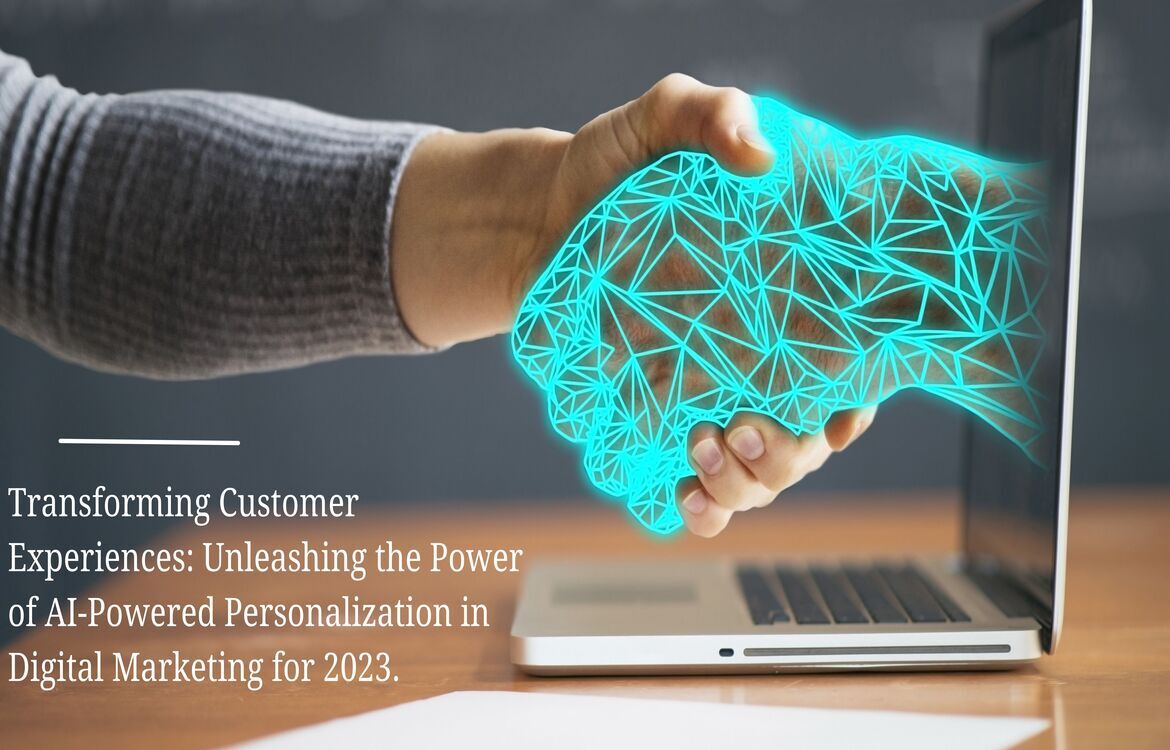In today’s competitive digital landscape, having a solid SEO strategy is no longer optional—it’s essential. Whether you are a B2B company looking to expand...
- Are Robots Taking Over Your Marketing Strategy? Really!!!!!
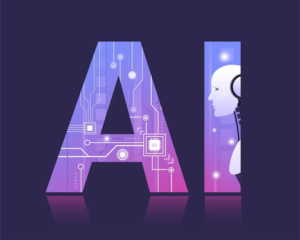
Welcome to the future of digital marketing, where groundbreaking advancements in Artificial Intelligence (AI) are propelling businesses into uncharted territories.
But here’s the shocker: Are these AI-powered robots slowly but surely replacing the human touch in crafting customer experiences?
In 2023, AI-powered personalization stands at the forefront of this digital revolution, promising to captivate, engage, and retain customers like never before. We’re here to explore the extraordinary landscape of AI-driven marketing, debunk myths, reveal hidden gems, and embrace the transformative potential that lies ahead in the realm of customer-centric marketing. So, fasten your seatbelts and prepare for a thrilling journey where technology and creativity merge, and the future of customer experiences takes a quantum leap.
Let’s resolve some myths and disclose some facts-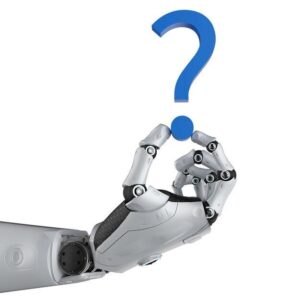
- Is AI the Secret Weapon in Modern Marketing Warfare?
- Unraveling the AI Revolution: How Much of Your Marketing is Automated?
- Are Your Customers Interacting with Chatbots More Than You Think?
- AI in Digital Marketing: Friend or Foe?
- Are Human Marketers Becoming Obsolete in the Age of AI?
- Are AI Algorithms the New Marketing Geniuses?
- Is Personalization Powered by AI the Future of Customer Loyalty?
- AI-Powered Personalization: Are Your Competitors Ahead of the Game?
- Are Robots Responsible for Your Recent Marketing Success?
- AI Marketing: Are You Prepared for the Disruption?
Let’s understand the meaning of AI or Artificial Intelligence
AI, or Artificial Intelligence, refers to the development of computer systems capable of performing tasks that typically require human intelligence. These tasks may include problem-solving, learning, decision-making, speech recognition, and natural language understanding, among others. AI systems are designed to analyze data, learn from it, and make informed decisions without explicit programming.
Digital Marketing Reinvented: The AI Advantage
Benefits of Using AI in Digital Marketing:
- Enhanced Personalization: AI enables marketers to gather and analyze vast amounts of data about individual users, allowing them to deliver personalized content and recommendations. This personalized approach can significantly improve customer engagement and satisfaction.
- Improved Customer Targeting: AI can segment customers based on various factors, such as demographics, behavior, and preferences. This allows marketers to target specific audience groups more effectively, resulting in higher conversion rates and reduced ad spend wastage.
- Predictive Analytics: AI can analyze historical data and identify patterns to make accurate predictions about customer behavior and market trends. This helps marketers make data-driven decisions and optimize their marketing strategies for better results.
- Automated Content Creation: AI-powered tools can generate content such as product descriptions, blog posts, and social media updates, saving time and effort for marketers. This automation can also maintain consistency and relevancy in content delivery.
- Chatbots and Customer Service: AI-powered chatbots can provide instant customer support, answer common queries, and handle routine tasks, ensuring 24/7 availability and quick response times.
- Real-time Data Analysis: AI tools can process vast amounts of data in real-time, enabling marketers to monitor campaigns, track performance, and make necessary adjustments promptly.
AI Magic at Your Fingertips: Top Tools for Digital Marketers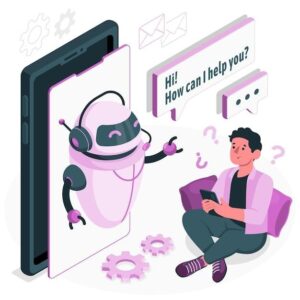
- Chatbots and Virtual Assistants: Tools like Chatfuel, Dialogflow, and ManyChat enable the creation of AI-powered chatbots and virtual assistants for customer support and engagement.
- Content Generation: Platforms such as Articoolo and Writesonic can automatically generate content based on specific keywords and topics.
- Predictive Analytics: Tools like Google Analytics, IBM Watson, and SAS Analytics use AI algorithms to analyze data and predict customer behavior and market trends.
- Social Media Management: AI-powered tools like Hootsuite and Sprout Social help manage social media accounts, schedule posts, and analyze engagement metrics.
- Personalization: AI platforms like Adobe Target and Dynamic Yield offer personalized content and recommendations based on user behavior and preferences.
AI Brilliance: Pros and Cons of the Smart Revolution
Merits (Advantages):
- Efficiency: AI can automate repetitive tasks, saving time and effort for businesses and individuals.
- Data Analysis: AI can process vast amounts of data quickly and extract valuable insights for informed decision-making.
- Personalization: AI enables personalized experiences for customers, leading to higher satisfaction and increased loyalty.
- Accuracy: AI algorithms can perform complex calculations with a high degree of accuracy, reducing human errors.
- Scalability: AI systems can handle a massive number of tasks simultaneously, making them ideal for handling large-scale operations.
Demerits (Disadvantages):
- Cost: Developing and implementing AI technologies can be expensive, especially for small businesses.
- Privacy Concerns: AI relies heavily on data, which raises privacy and security issues regarding user information.
- Lack of Emotional Intelligence: AI lacks human emotions and understanding, making it challenging to handle certain sensitive or emotional situations effectively.
- Bias and Fairness: AI algorithms can inherit biases present in the data they are trained on, leading to biased decision-making.
Future of AI in Digital Marketing:
The future of AI in digital marketing looks promising, with continued advancements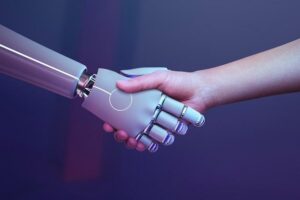 and integration into various marketing processes. Some potential developments include:
and integration into various marketing processes. Some potential developments include:
- Hyper-Personalization: AI will play a more significant role in delivering personalized experiences, tailoring content, offers, and recommendations even more accurately to individual customers.
- Voice Search Optimization: With the increasing popularity of voice-activated devices and virtual assistants, AI will help optimize digital marketing strategies for voice-based queries.
- AI-Generated Creative Content: AI will continue to evolve in generating high-quality creative content like images, videos, and interactive experiences, reducing the need for human involvement.
- Autonomous Marketing: AI-powered systems will become more autonomous, identifying opportunities, executing campaigns, and adjusting strategies without extensive human intervention.
- AI-Driven Customer Insights: AI will analyze customer data in real-time to provide marketers with actionable insights, helping them understand customer needs and preferences better.
The big question of whether AI will replace human beings in digital marketing is a complex and nuanced one !!!
The integration of AI in digital marketing presents a win-win situation for both marketers and AI technology itself. For digital marketing personnel, AI brings a plethora of benefits that lead to enhanced productivity, increased customer satisfaction, and improved business outcomes. The ability to leverage AI-powered tools such as chatbots, content generation platforms, and predictive analytics empowers marketers to deliver personalized and targeted experiences, ultimately driving better results for their clients or organizations.
AI’s predictive capabilities enable digital marketers to make data-driven decisions, ensuring optimized campaigns and maximizing returns on investments. This not only boosts the marketers’ confidence in their strategies but also positions them as invaluable assets to their clients or companies.
Despite concerns about job displacement, AI should be seen as a complementary tool rather than a replacement for human expertise. By automating repetitive tasks and providing valuable insights, AI allows marketers to focus on more strategic and creative aspects of their work, fostering innovation and job satisfaction.
Furthermore, as AI technology evolves, the digital marketing landscape will witness even more exciting advancements. Hyper-personalization will become the norm, offering customers tailor-made experiences that foster brand loyalty. Voice search optimization will reach new heights, allowing marketers to tap into voice-based interactions and revolutionize how consumers find and engage with products and services.
AI and Human Marketers: A Dynamic Duo for Digital Success!
In conclusion, the collaboration between digital marketing personnel and AI technology presents an exciting future where marketers can leverage the power of AI to achieve new heights of success, while AI continues to evolve and reshape the marketing landscape in ways that were once unimaginable. Embracing this symbiotic relationship will undoubtedly lead to a dynamic, innovative, and transformative era in digital marketing, benefiting both marketers and their customers alike.

